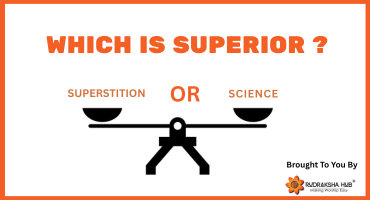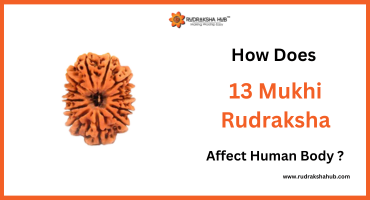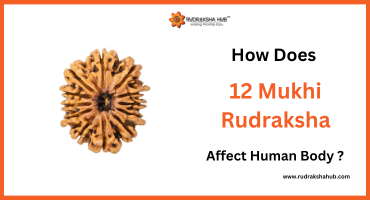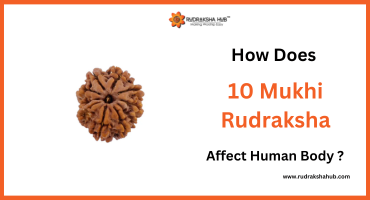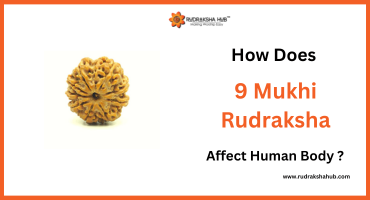
Shrimad Bhagwad Geeta Shlok Blog -15
Shlok-15
पाञ्चजन्यं हृषीकेशो देवदत्तं धनञ्जयः । पौण्ड्रं दध्मौ महाशङ्खं भीमकर्मा वृकोदरः ॥ 1-15 ||
English Transcription
Paanchajanyam Hrishikesho Devdattam Dhananjayah | Paundoom Dadhmau Mahashankham Bheemkarma Vrikodarah || 1-15 ||
Hindi Translation
Shri Krishna ne jis shankh jo bajaya tha safed ghodon wale rath par baith kar, us shankh ka naam Paanchajanya hai or Arjun ne jis shankha ko bajaya tha uska naam Devdatt hai. Bhayanak aivam shoorveer, Panduputra Vakodar Bheem ne jis Shankh ko bajaya tha, uska naam Paundrak tha or wo sabhi Shankhon me Mahashankh naam se bhi jana jaata hai.
English Translation
The name of the conch shell blown by Lord Krishna on his chariot with white horses is Paanchajanya. The conch shell blown by the best archer ever, Arjun, is named Devadatt. The conch shell blown by the bravest and best fighter son of Paandu and the one with the nickname Vakodar, Bheema, was called Paundrak.
Meaning
In the previous Shlok we saw that when Bheeshma Pitamah blew his conch shell to announce his alliance with Duryodhan, everyone in the Kaurava army believed that this was the announcement of the commencement of war also and thus they also blew their conch shells respectively, both to announce their readiness of the war and to announce their positions in the war. This was also done to showcase the power position the Kauravas thought they held as an advantage in front of the Pandavas.
With this, the Pandavas also treated this conch shell roar as the commencement of the war, and the eldest Pandava and the battle leader Arjun, who was seated on his chariot of four divine white horses and driven by Shri Krishna also took out their conch shells each to announce their readiness of war and the commencement of a new scene of their lives.
Shri Krishna, who was the charioteer of Arjun’s chariot, took out his conch shell, which he had named Panchajanya, and blew in it hard. This was to announce that he too had enough and he was ready to battle. We all know that Shri Krishna was not happy with the war and he tried his best to subside this feeling of hate and abhor between the brothers to establish peace and find an alternative solution to war.
Shri Krishna became the Shantidoot (agent of peace) and went with a proposal of peace and harmony from the Pandavas to the Kauravas. This was because the Pandavas were banned from entering the kingdom of Hastinapur under their names and when they had to return back, they needed the King’s permission to enter his kingdom. in this case, the king was Duryodhan and he had specifically denied them entering the kingdom boundaries. This was the reason the Pandavas had no option other than trying to gather help from someone who had permission to enter the court premises and no one would stop them.
At that moment, they remembered Lord Krishna, who resided in the regions outside the court's capital area and he had no barriers to entry or exit in the capital area.
Yudhishthir, the eldest Pandava had sent Shri Krishna with a peace petition to Duryodhan’s court. Shri Krishna had requested a lot of Duryodhan to give them either five small capital areas or just enough space to let five people reside anywhere in the entire Hastinapur.
To this, Duryodhan had talked very rudely to Shri Krishna and had insulted him in the entire courtroom in front of everyone. Even if this did not go well with Shri Krishna, he knew if he lost his temper, it will be a bad side for the Pandavas and thus, he tried once again to make things even for everyone. One last time, he requested Duryodhan to allow some sympathy to the Pandavas wherein Duryodhan lost his temper and he ordered his guards to catch Shri Krishna and keep him as a hostage if he does not leave within the next few minutes.
This was where Shri Krishna told Duryodhan that he had crossed all his boundaries and he will no further be allowed to insult Shri Krishna or the Pandavas beyond this point. He also said that if Duryodhan wants a fight, the Pandavas will give him a fight, and a tough one at that.
A famous author, Ramdhaari Singh Dinkar, wrote in his Mahabharata short epic, Rashmirathi, how Duryodhan angered Shri Krishna to the extent that he had to say, “Yachna Nahi, Ab Ran Hoga.” (No more pleading. Now there will only be a war and we will give you what you want, just the outcome still will be what we want and what is right.)
This was the reason why Shri Krishna, who knew that he could not raise any equipment in the war to fight, sided with the Pandavas because they treated him with respect as a guardian and Duryodhan treated him as a competitor and an enemy and a traitor.
Thus, Shri Krishna took out his Shnakh, Panchajanya, that denoted his victory of good over evil, and thus he blew on it to denote that this was one more time he will be portraying his victory of good over Duryodhan’s and Kaurava’s evil.
Panchajanya was named so because Shri Krishna had defeated a devil named Panchan. Panchan was a devil who knew that Shri Krishna had a habit of blowing into his conch shell every day as a sign of indicating to everyone that he was there to listen to their issues and problems and provide solutions for the same as well. Thus, Panchan took the shape of the conch shell and sat on the stand waiting for the time when Shri Krishna will try to blow on it, he will suck the life out of Shri Krishna’s mouth and then he will be able to conquer the world, which he wouldn’t be able to to do otherwise with Shri Krishna present.
So, he waited and was very excited about the same. The only mistake he did was that he forgot that Shri Krishna was not just another normal human being and he will know for sure even before Panchan could think to try anything this time, Panchan did not just think to try, he actually in wait to execute his poor and malicious intentions.
So, when Shri Krishna noticed something wrong with his Shankh, he understood the entire trap Panchan tried to set up the moment he picked up his conch shell, which seemed bulkier than before. So, Shri Krishna knew what he had to do.
He took the Shankh to his mouth and rather than blowing in the Shankh, he sucked the air from the Shankh and the life of devil Panchan started getting sucked out of his mouth. The entire plan was the same, just the executor and victim were switched.
This was when Panchan realized he had messed with the wrong person and he had to come into his real form to ask forgiveness. Since he had done enough damage already and he was on the brink of losing his life, Shri Krishna did not forgive him but made him into a real Shankh and kept it with him. The devil’s name was Panchan, so the name of the Shankh became Panchajanya, or the one who became victorious over the devil Panchajanya.
Arjun, the second Pandava brother, and the most fierce and brave fighter, also had his conch shell named Devdatt. Arjun was called Dhananjaya because he was the collector of wealth after he won a war against a rival king. In ancient times, when a strong King had to expand their kingdom, they used to talk to the neighboring kingdoms. If the king there thought that they need to fight a battle as they are strong, they would do that and the strong king would get everything of the losing kingdom, including wealth and the queen and princess. If the King of the different kingdoms knew that they did not want to fight either because they cannot win or they just need to pledge their alliance and not be a rival but a friend, they would do that on terms of royalty whereby, they would pay some amount as a convenience fee to the strong King and become their allies in times when they need help to win another battle.
This was the reason that when the Mahabharata war was announced, the Pandavas could make all the friends Kings and their Kingdom on their side and thus, they could build the army on rent from the kingdom of other Kings.
Arjun however never went for any lady or queen or princess of any kingdom he won. He was a fierce warrior and he had never lost any battle. All the Kings knew that they will be a happy ruler under the blessing of Arjun and never as a rival to Arjun. So they either pledged their alliance or they lost the battle to Arjun. Each time, as a war victory, Arjun would only take the money of the Kingdom to merge it with his Kingdom and make the wealth quotient of Hastinapur stronger and more prosperous.
This was why Arjun was referred to as a wealth collector or Dhananjay. His Shankh was called the Devdutt, or the agent of the angels. This conch shell denoted how dedicated and brave Arjun was that the conch shell also supported his roar as the call of the angels or the agents of God.
Next up was the third Pandava, Bheem, the person who was also a fierce battle fighter, but he specialized in warfare without equipment, on-field. He was the one Pandava who had single-handedly destroyed many devils like Hidimbasur, Bakasur, Jatasur, Keechak, Jarasandh, and the like. This was why he was nicknamed Bheemkarma or the Bheem that gives the result of Karma.
Bheem was not just an excellent fighter, he was an avid eater as well. He was so foodie that normal people have a Jatharagni (small fire in the digestive system that digests food), but Bheem had Vrikagni (excessive fire in the digestive food capable of digesting a huge amount of food). This was why Bheem was also referred to as Vrikodar or the person with Vrikagni.
This bulky-bodied Bheem was the owner of the conch shell named Paundrik, which meant as fierce the owner as the voice. It was also referred to as Mahashankh, or the master conch shell, which was the loudest and a very very fearful voice showing the exact characteristic of Bheem as well.
Conclusion
Thus we saw that the wave the Kauravas had started off trying to gain their victory in the most unlawful manner over the Pandavas in a fit of greed and violence was being tackled by the Pandavas in the fit of lawful and ethical manner but equally reciprocating and loud so as to show that they weren’t afraid of the oncoming dangers and if anything, they too could be double the dangerous despite the major issue of having smaller army than the Kauravas both in size and in experience, even though it didn’t create much of a difference owing to the fact that Pandavas had Shri Krishna with them as the warfare strategist and the world knows that no one, howsoever powerful they are, cannot defeat the Lord himself in a direct fight. Thus, there was a constant tussle going on which led to the war announcement and commencement was done with conch shells and drums from the Kauravas while was replied to by the Pandavas in an equal manner, starting with Arjun, Shri Krishna, and Bheem, the third Pandava brother. It is just left to the fate of what will unfold further as the war continues and who will learn first that all this was due to some small misunderstandings which would have been cleared as and when they happened had the people associated with it would have used common sense and an open mind then and there.
This was Shrimad Bhagwad Geeta Shlok-15, Chapter-1. We will see you tomorrow with Shlok-16, Chapter-1. In case you have missed Shlok-14, Chapter-1 then check it out here.
Follow us:
Facebook: https://www.facebook.com/RudrakshHub
Instagram: https://www.instagram.com/rudrakshahub/?hl=en
LinkedIn: https://www.linkedin.com/build-relation/newsletter-follow?entityUrn=6965943605077164032
Youtube: https://youtu.be/5sIaimlErf4
Spotify: https://open.spotify.com/show/7sAblFEsUcFCdKZShztGFC?si=61a7b9a9e46b42d6

